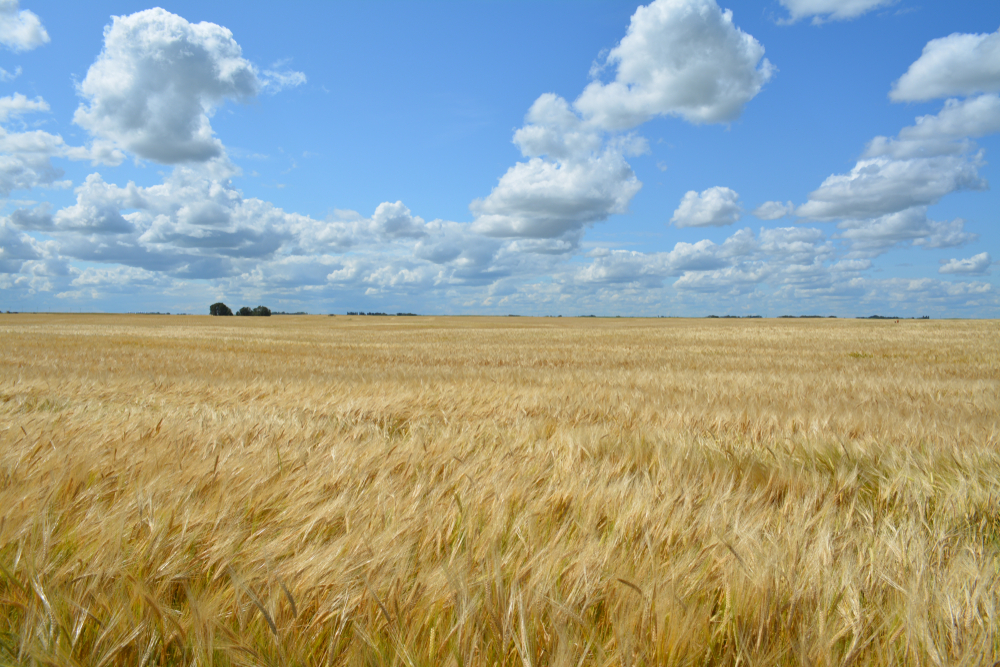SASKATOON, SK (July 17, 2023) – The Saskatchewan Wheat Development Commission (Sask Wheat) and the Agricultural Producers Association of Saskatchewan (APAS) oppose a recent decision by the Canadian Grain Commission (CGC) to tighten the primary elevator tolerances for test weight and total foreign material to export tolerances for most western Canadian wheat classes and are calling for a quick reversal of this decision.
In early June, the CGC announced that longstanding separate primary and export standards for test weight and total foreign material for most western Canadian wheat classes would be harmonized at the tighter export tolerances, effective August 1, 2023. Wheat producers will potentially face significant negative financial implications as harmonized test weight and foreign material standards may lead to quality downgrades and lower prices at primary elevators.
Test weight is of particular concern. With the primary standard tightened to export standard, CWRS wheat that previously would have graded a number one could be downgraded to as low as feed if test weight is the determining grade factor. The current separate primary and export standards recognize that blending and cleaning throughout the grain handling system naturally and economically improve grain quality for grain handling companies. Producers do not have the same ability to improve the test weight of their grain.
“Sask Wheat is calling on the CGC to reverse the decision to harmonize the test weight standards at export standards before it creates additional production and price risk for Saskatchewan’s wheat farmers,” said Brett Halstead, Sask Wheat Chair. “Not only was this decision ill-considered and finalized hastily, but it was also done without proper consultation with producer groups and individual farmers who will bear the costs of the tighter standards. This decision failed to consider a motion that was carried at the most recent Western Standards Committee meeting asking for such a decision to be delayed until an economic analysis is completed and the results are considered in the decision. Sask Wheat has repeatedly asked the CGC to undertake an economic impact analysis, especially of the impact on producers. This needs to be completed and made public by the CGC before harmonization of these standards is considered again.”
Contrary to its messaging, the CGC has provided no evidence that tightening these primary tolerances to align with export tolerances is necessary to maintain export quality, nor has it shown how this change will support or is neutral to its mandate to act in the interests of grain producers. Even though Sask Wheat believes that this work is the CGC’s responsibility, Sask Wheat commissioned a preliminary study that provides a framework to evaluate the economic and marketing impacts of the harmonization of differing primary and export tolerances.
“Higher grading standards for test weight and foreign material increase the risk that producers will receive lower grades for their production. This could negatively affect farm revenue for years to come,” noted Ian Boxall, APAS President. “The CGC’s mandate is to work in the interest of grain producers, and Saskatchewan farmers are left wondering how these changes could proceed without completing the economic analysis that producers have asked for”. Boxall noted that APAS recently completed its summer district meetings, where producers across the province shared the opinion that these changes should be reversed and only reconsidered after an economic analysis and clear policy rationale are presented.
More information on the potential impact of the CGC’s decision to harmonize the longstanding separate import and export tolerances for test weight and foreign material can be found on the Sask Wheat website: saskwheat.ca




